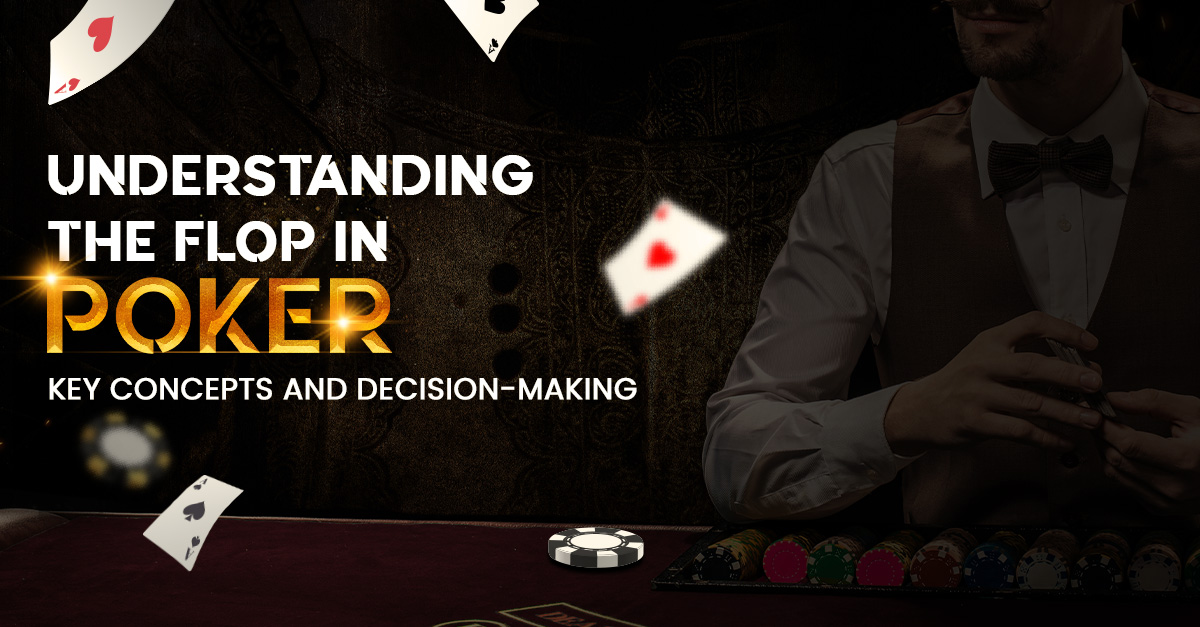In the game of online poker tournaments, the flop is a crucial and defining moment that can significantly impact the course of the hand. It is the first set of community cards that are revealed after the initial betting round, and it provides players with valuable information about the potential strength of their hand and their opponents’ hands. Mastering the understanding of the flop is essential for any poker player looking to improve their gameplay and make informed decisions. In this article, we will explore the key concepts and decision-making strategies when facing the flop in poker.
What is the Flop in Poker?
Before diving into the nuances of the flop, let’s understand what it is. In most popular poker variants, such as Texas Hold’em and Omaha, the flop consists of three community cards that are dealt face-up on the table. This occurs after the first round of betting, which includes the initial deal of two hole cards to each player. The flop serves as the foundation for the rest of the hand and significantly influences the betting rounds that follow.
Key Concepts of the Flop:
Community Cards: The flop is a set of community cards, meaning that these cards are shared by all players at the table. Each player can use these community cards in combination with their hole cards to form the best possible hand.
Opening Hand Strength: When the flop is revealed, players must assess the strength of their opening hand in conjunction with the community cards. The flop can greatly improve or weaken a player’s hand, depending on the cards dealt.
Hand Combinations: The flop provides players with numerous possibilities to create different hand combinations. Players must analyze the potential for making strong hands like a straight, flush, or even a full house.
Pot Odds: The flop is a critical moment to evaluate the pot odds – the ratio of the current bet to the potential payout. Understanding pot odds helps players determine if it is profitable to continue with their hand based on the likelihood of improving it on the turn or river.
Decision-Making Strategies on the Flop:
Analyze the Community Cards: As the flop is revealed, the first step is to carefully examine the community cards and assess how they might affect your poker hand. Consider possible straight draws, flush draws, and potential combinations of strong hands.
Evaluate Your Hand: After analyzing the community cards, evaluate your own hand in combination with the flop. Determine if you have a strong hand, a drawing hand, or a weak hand. This evaluation will guide your decision-making in the upcoming betting rounds.
Consider Opponents’ Play: Pay close attention to how your opponents react to the flop. Their betting patterns and body language can provide valuable insights into the strength of their hands and potential strategies.
Continuation Betting: If you were the initial aggressor in the pre-flop betting round, you may opt for a continuation bet on the flop. This involves betting again after the flop, which can help maintain control of the hand and put pressure on your opponents.
Be Mindful of Position: Your position at the table is crucial in poker, and this holds true on the flop as well. Being in a late position allows you to see how other players act before making your decision, providing you with more information to work with.
Pot Control: In some situations, particularly with marginal hands, you may choose to exercise pot control on the flop. This means avoiding large bets and keeping the pot smaller to minimize potential losses.
In conclusion, understanding the flop and making well-informed decisions during this critical stage of a poker hand is essential for success in the game. Analyzing the community cards, evaluating your hand, considering opponents’ play, and being mindful of your position are all vital components of effective decision-making on the flop. By mastering these key concepts and strategies, players can enhance their gameplay and increase their chances of winning in poker. So, the next time you face the flop, approach it with confidence and use it as a platform to set the stage for a successful hand. Check out our poker app.
